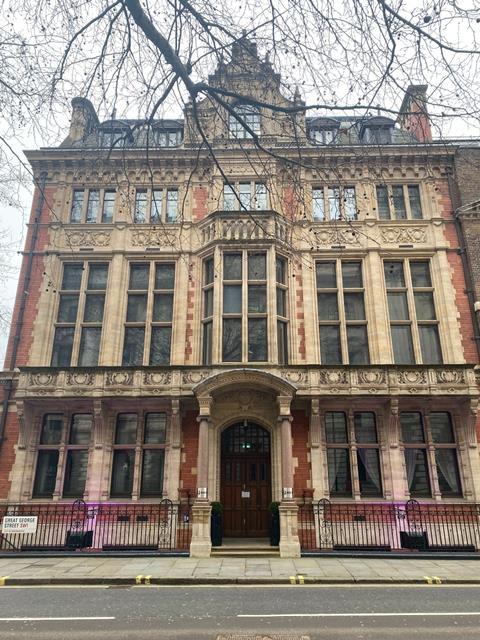Walkout follows governing council move to transfer responsibilities to newly created knowledge and practice committee
All members of the Royal Institution of Chartered Surveyors’ (RICS) standards and regulation board (SRB) have resigned.
RICS president Ann Gray said she had accepted a letter of resignation from SRB chair Janet Paraskeva “in the last few days” and the SRB’s nine other members had all since followed suit.
It is understood the members had walked after it emerged the RICS’ governing council planned to break up the board and transfer responsibilities for technical standards to the newly established knowledge and practice committee.
The departed SRB members included Turner & Townsend director Bruce Haswell, EY partner Leigh Miller, surveyor Richard Waterhouse and Lionheart global ambassador Dele Oyekanmi, along with five non-executives.
Gray said the RICS had begun the search for a replacement interim chair and board members and “looks forward to working with them to drive forward RICS’ transformation programme”.

The governing council is now looking to halve the number of SRB members from 10 to five on a short term basis, consisting of one chair, two RICS members and two independent members.
The resignations come just days after the institution announced the appointment of its new permanent chief executive, former Knight Frank chief operating officer Justin Young, on 20 June.
> Also read: RICS appoints real estate guru and former army captain as new CEO
In a Q&A posted on its website, the RICS said Paraskeva was invited to a meeting on 23 June to discuss “a number of significant matters”, including reports from third parties that assurances she had given to the governing council ”may have been at odds with those being discussed elsewhere”.
“This would have been an opportunity for Dame Janet to respond to the matters that had been raised but shortly before the meeting was due to take place, she decided to tender her resignation instead.
“Subsequently her Board also tendered their individual resignations,” the RICS added.
Asked if there had been an intentional campaign to remove Paraskeva, the RICS said “absolutely not”.
It added the governing council had given Paraskeva “every opportunity to convey concerns and to discuss issues relating to operational changes RICS was making”.
The creation of a knowledge and practice committee was recommended in Michael Bichard’s independent review of the RICS, which was ordered after a governance scandal in 2021 led to the resignations of four senior leaders including former chief executive Sean Tompkins.
Asked if transferring powers to the new committee contradicted the Bichard review, the RICS said “there are different ways to operationalise” the recommendations.
It said the governing council had accepted this would require the reallocation of a “small number” of technical staff and resources from the SRB to the knowledge and practice committee but had agreed the move was in line with the Bichard review.
The institution added that its governing body had “determined that it was most appropriate that the team who develop technical standards but also do wider work on practice information and professional development, should directly support the work of the Knowledge and Practice Committee”.
The SRB will retain the authority to approve all professional standards under the changes, including technical surveying standards developed by the knowledge and practice committee.
Gray said: “RICS passionately believes in robust self-regulation in the public interest. We thank Dame Janet and her colleagues on the SRB for their service to RICS - their contributions have been immensely valuable across numerous areas including the new Rules of Conduct, fire safety and valuation.”


























No comments yet